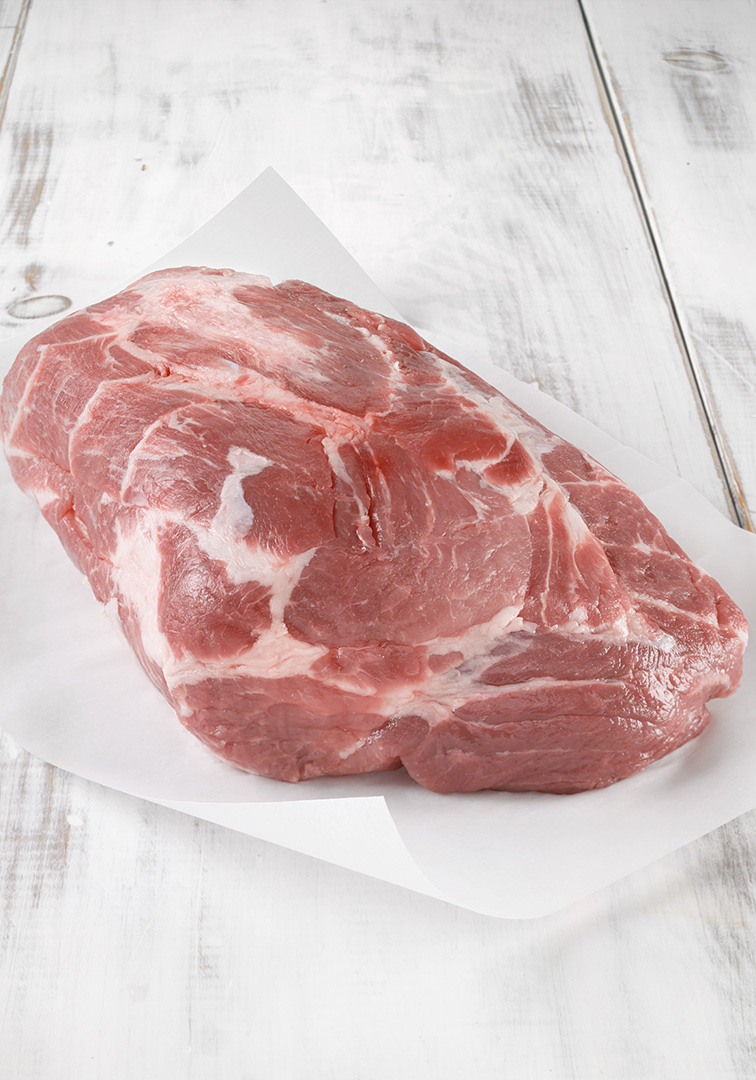Pork shoulder

The pork shoulder is a cut of meat from the upper front of the hog. It’s prized for its rich flavour and tenderness after proper cooking. Here’s a guide to understanding and cooking this culinary delight.
Key features
The pork shoulder is a muscular section, often marbled with fat, which gives it exceptional tenderness when cooked slowly. It’s usually divided into two main sections: the “blade or butt” (near the neck) and the “picnic” (closer to the shoulder).
- Rich, flavourful and juicy because of its intramuscular fat, which is perfectly complemented by various herbs and spices.
- The meat is more muscular than other parts of the hog but becomes very tender after slow cooking.
- Suitable for many cooking techniques including roasting, braising and simmering.
Cooking techniques
- Cooking pork shoulder in the oven produces juicy meat with a golden-brown crust. In a Dutch oven or roasting pan, season and roast in a 325°F oven for 3 or 3 1/2 hours, or until meat pulls apart easily with a fork.
- This method slowly cooks the pork shoulder in a liquid (such as broth or wine) at a low temperature. The result is extremely tender meat that easily falls apart. First brown in a pan over medium-high heat, then cook in the slow cooker on low for 8 hours.
- Ideal for tender, lightly crusted meat. Spices and marinade add an extra dimension.
- Smoking the meat at low temperatures for several hours is an excellent way to achieve a deep, unique flavour.
- This technique, which involves sealing the meat in an airtight bag and cooking it at a low temperature, guarantees even cooking and incomparable tenderness.
Sub-cuts
- Unique on the market, this pork cut from Quebec is marinated in a chimichurri sauce made with fresh herbs, garlic, and lemon. Tender and juicy, it is best enjoyed medium-rare. Ready to cook, it promises a fresh and flavorful experience.
:quality(65))
:quality(65))
:quality(65))
:quality(65))
:quality(65))
:quality(65))
:quality(65))
:quality(65))
:quality(65))
:quality(65))
:quality(65))
:quality(65))
:quality(65))
:quality(65))
:quality(65))
:quality(65))
:quality(65))